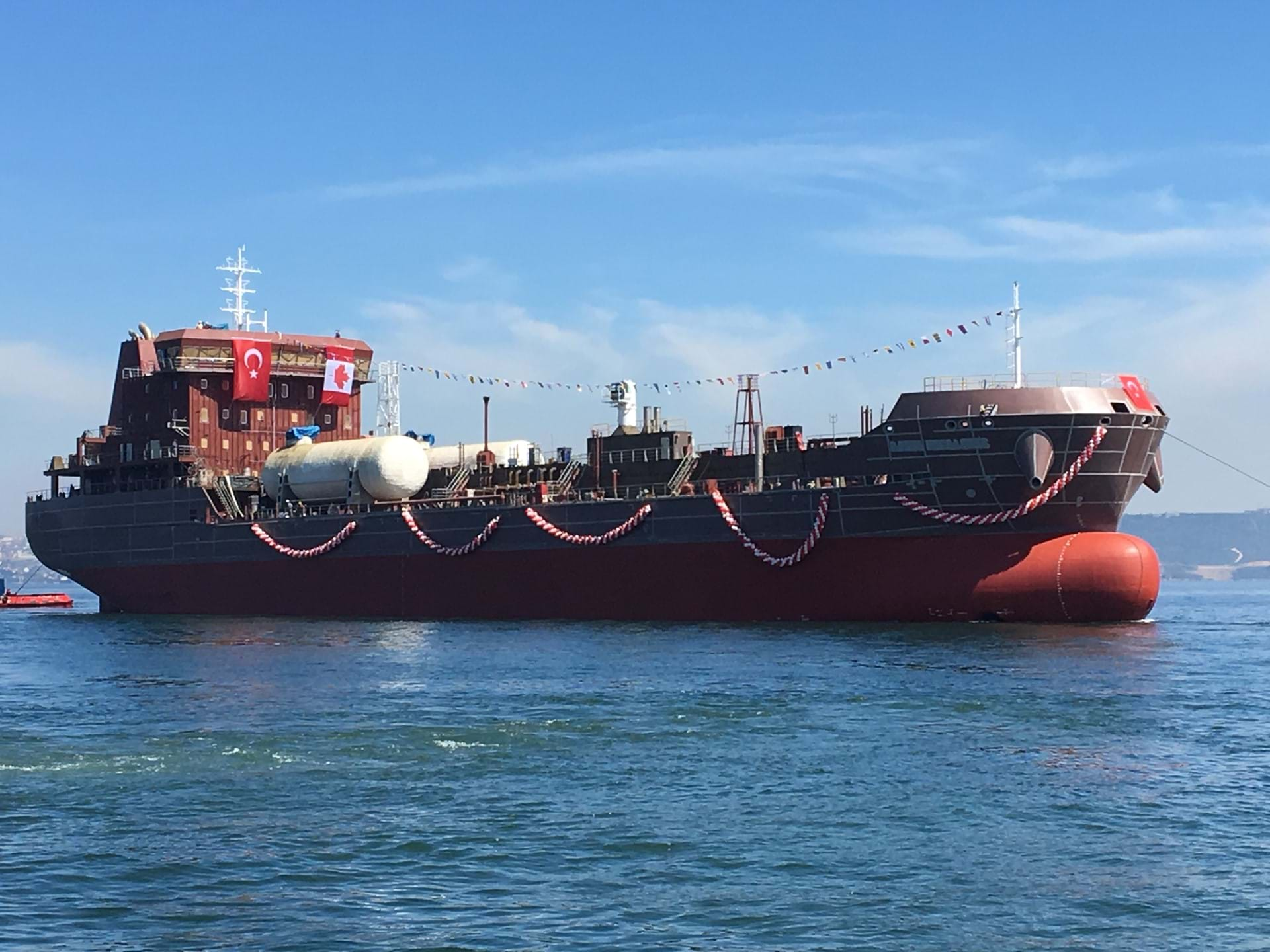
One step further towards dual fuel vessel for Desgagnés
The M/T Damia Desgagnés, was successfully launched on Saturday, June 11th, 2016, at the Turkish shipyard Besiktas. It is an important step leading to the continuation of the construction of the ship at dock.
The M/T Damia Desgagnés is the first of four next generation asphalt-bitumen-chemical tankers destined to the renewal and expansion of Desgagnés’s fleet. These new vessels will be powered by dual-fuel engines allowing the use of liquefied natural gas (LNG), marine diesel oil (MDO) and heavy fuel oil (HFO): a first for merchant vessels in Canada.
Expected for fall 2016, the Damia Desgagnés will have a deadweight of 15,100 tons and be able carry 13,350 tons of asphalt at a draft of 7.8 meters; its tanks will offer a carrying capacity of 14,950 m3 at 98 %. It will be equipped with a Wärtsila 5RT-flex 50DF propulsion engine with a power output of 5,540 kW, and have a POLAR 7 certification, allowing it to navigate in ice-laden waters.
It will hold a CLEANSHIP SUPER notation, meaning that the ship has several equipment meeting strict environmental standards including ballast and grey water treatment systems, as well as being able to operate at least seven consecutive days with no discharge of effluents or residues. The Damia Desgagnés will also hold a GREEN PASSPORT notation, certifying that certain specific materials used during the construction of the ship are identified and noted in a record updated annually and re-certified every 5 years, to ensure safe manipulation and disposal of those materials during the vessel’s maintenance and repair, as well as during its dismantlement upon the end of its useful life.
When using natural gas as its primary source of energy, the Damia Desgagnés will achieve several environmental objectives, including: the reduction of carbon dioxide (CO2) emissions by approximately 25% due to a lower carbon content in natural gas compared to liquid fuels; the reduction of nitrogen oxide (NOX) emissions by over 85% due to the lean-burn combustion process achieved by the ship’s engine; the near-complete elimination of sulphur oxide (SOX) emissions since natural gas contains very little sulphur; and air particle emissions will be practically non-existent due to the efficient combustion of natural gas.